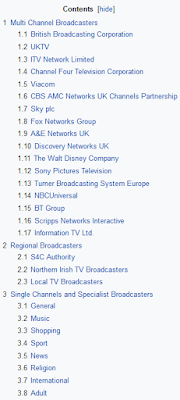KEY POINTS FROM THE BRIEF
Key points to consider:
- your idea would be pitched to a digital channel, NOT a terrestrial or free-to-air channel
- they've asked members of the public to pitch, perhaps further connoting low budget...
- it must have a USP
- you'll quickly see there are MANY competing game shows
- what will make YOURS stand out?
- it must appeal to all the family, younger, older, male, female (four quadrants)
- look at how shows like Family Fortunes tried to appeal to a family audience
- think carefully about Key Concepts Representation/Media Language: the presenter/s, set, contestants, task or competition - and difficulty level of any questions or challenges (can younger viewers engage, or (U+G theory!) identify?)
- the programme title itself is very important - and, just like a magazine masthead, you need to plan the look of this: you could search for a specific font and mock this up, just be prepared to denote the font (serif, bubble, case, colour etc)
- "the focus on the family audience must be clear from the opening title sequence"
- be prepared to storyboard your title sequence
- the slot is Saturday evening primetime, scheduled for autumn
- research what shows currently hold these slots
- a good sign of success is it coming back for more than one year or season!!!
- viewers at home must be able to play along in some way: audience interactivity, engagement
- social media/e-media are vital to promoting the show and brand + increase the audience
- this could also be about monetising: SMS/premium rate phone voting or competition entry, but also (freemium?) apps, board games, DVD games etc
- be prepared to draw a website, app or social media home page (or more)
- research existing examples
- your idea needs to be backed up with evidence from existing, successful game shows
SOME HANDY LINKS
A site all about UK TV game shows, including the history!
A wiki
My playlist of examples
Quiz shows are cheap to produce, and offer additional revenue streams, as this article on US TV networks highlights:
"There's a lot of money that can go to internal sponsorships and sponsor prizes," said Billie Gold, VP of research and programming, Carat. "Advertisers can integrate easily and there are very short lead times." ... the format offers an extremely good business model that can really take off when a show hits, [NBC] said.SOURCE: Ad Age.
"These are family-friendly shows... "Production costs are low and it is a high revenue business. There's money in doing these things."
Live elements also give broadcast viewers an experience that streaming services still can't match. "Million Second Quiz" will let viewers to play along in real time, with the potential of appearing on the show. Play will also continue around the clock even when the show is not on the air, rewarding viewer-players the more they participate.
 |
| See Wiki for more |
You're pitching for a digital channel = smaller audiences = smaller ad revenues = lower budget than terrestrial/free-to-air UK channels (BBC1, BBC2, ITV1, C4, C5 - ALL available through every TV set without any further charge or subscription, apart from the TV License Fee which funds the BBC, the only channels which don't carry ads).
Research tasks: digital channels, their branding, and audience. There are specialist/niche channels focused on a specific genre or format (e.g. Challenge for reruns of game shows, Dave for reruns of comedy), and mixed-content mainstream channels (eg ITV3, SkyOne). You can see from the Wiki screenshots that there are a lot of channels, a lot of conglomerate rivals, and multiple delivery (or distribution/exhibition) platforms for TV viewing in the UK.
Useful terms: conglomerate/subsidiary; digital, analogue; terrestrial, free-to-air; ad-funded, ad revenues; license fee; subscription; specialist/niche, mainstream mixed-content; delivery platforms; audience demographic; reruns; channel branding...CHANNEL PROFILING EXAMPLE - Researching Dave:
Dave is not a family audience channel; it pitches male and adult, and a little bit downmarket (C1C2DE), so this is just an example of the type of info you can find with a little research. You would be better looking into 1 quiz show specialist channel and/or a general channel that includes quiz shows in its actual, current primetime scheduling, aimed at a wide (four quadrant) audience.
I googled 'Dave TV brand' and 'Dave TV audience'; here are a few sample results:
extends its brand; its website; 2014 brand refresh; how it built its success (Guardian); excerpt from book TV Brand Builders; pitching to Dave guide; advertiser guide.
 |
| Just part of a Wiki list of Sky channels alone! |
SPONSORSHIP/ADVERTISING
Carrying on with the Dave example, which I'm picking out as it isn't one you should use in the exam (ie, do your own research!), here you can see the type of detail stations provide for potential advertisers. If you can find similar detail for a channel that you think might be comparable to Communique TV, that will be great detail to show a grasp of Key Concepts Audience and Institution. If you look at how the programme sponsors design their short ads before/after each programme segment, that will help with Key Concept Media Language.

THE SLOT
Saturday evening primetime (6-9pm): biggest audiences, highest likelihood of family viewing, most expensive ad slots.
Research actual examples: quiz shows, the channel they're on and their scheduling slot. How much of the running time is taken up with ads? Digital channels are allowed more ad time than the terrestrial channels. Here's a guide from the quality (broadsheet) newspaper Daily Telegraph on recent changes to the regulations.
Here's a guide on costs of buying 30 second ads (may not work in school). Sponsorship and other forms of advertising are perhaps the future though...
Here's a sample ad buying cost guide:
 |
| See this ad agency's page for more detail |
No comments:
Post a Comment
Please note that ALL comments are checked and moderated BEFORE possible publication